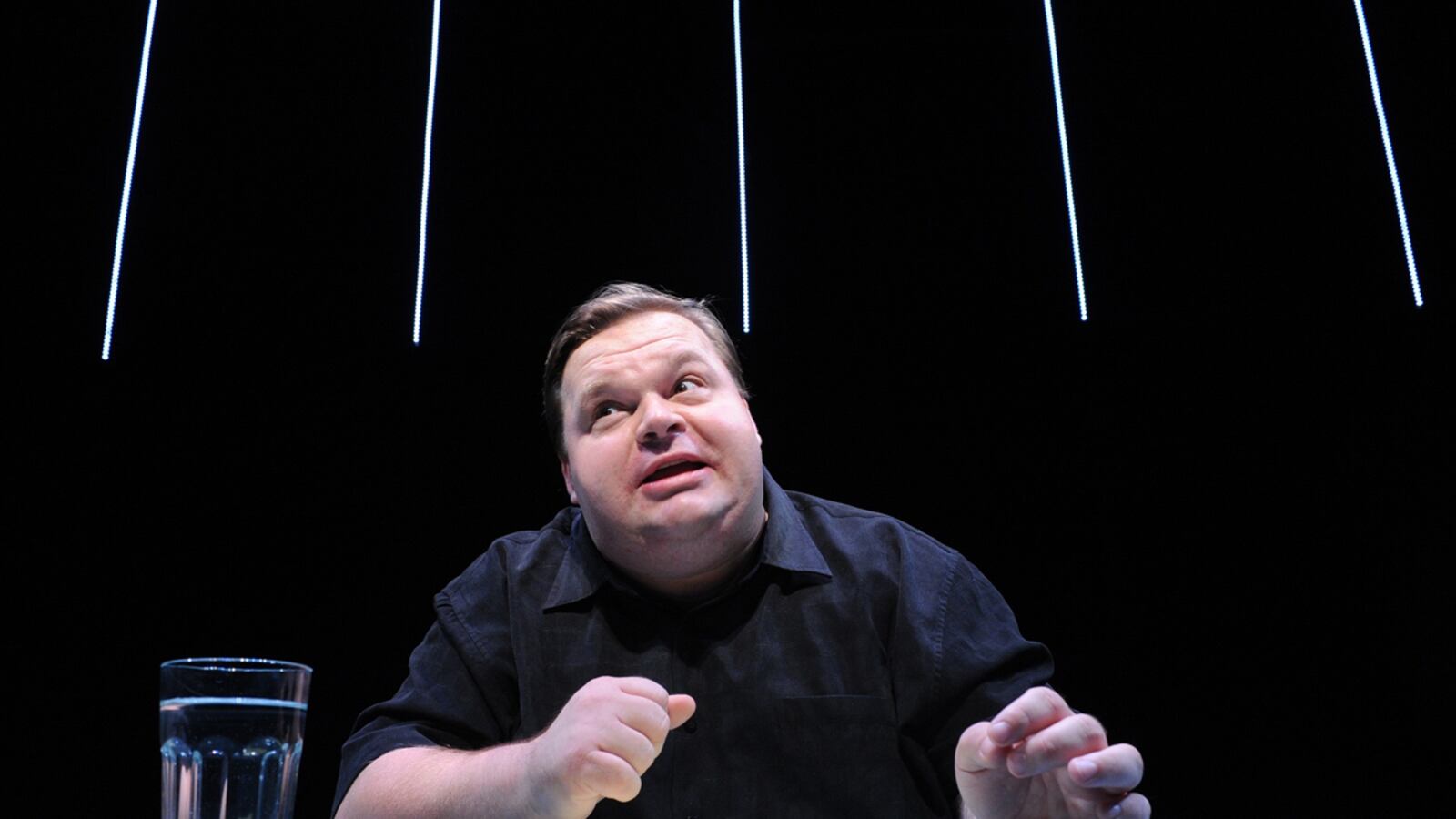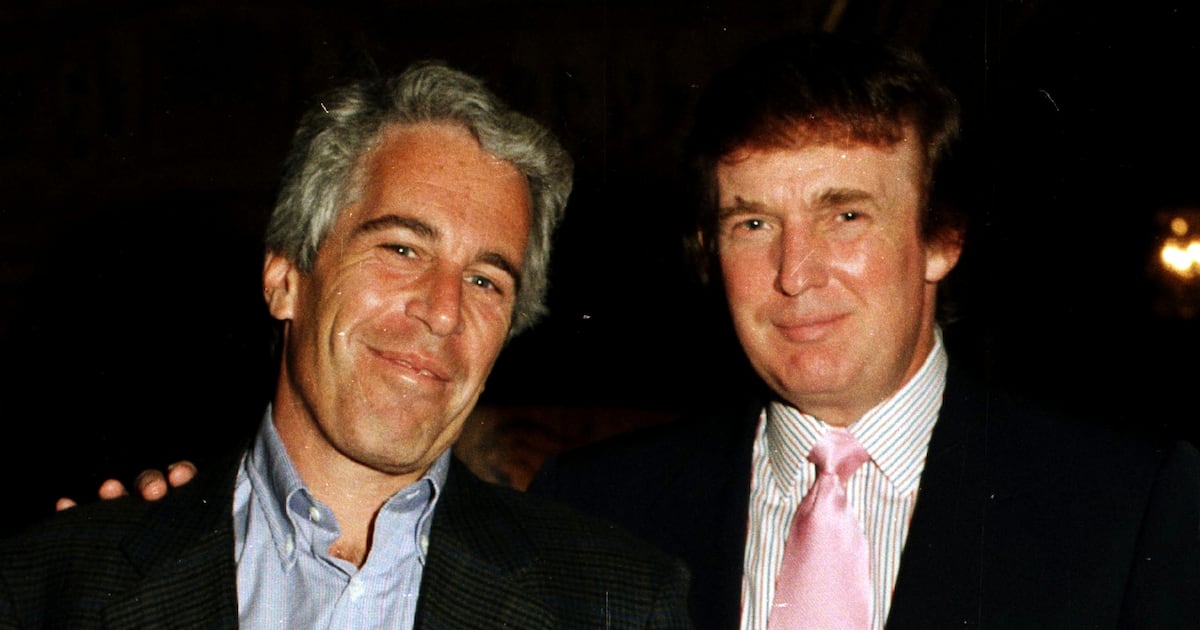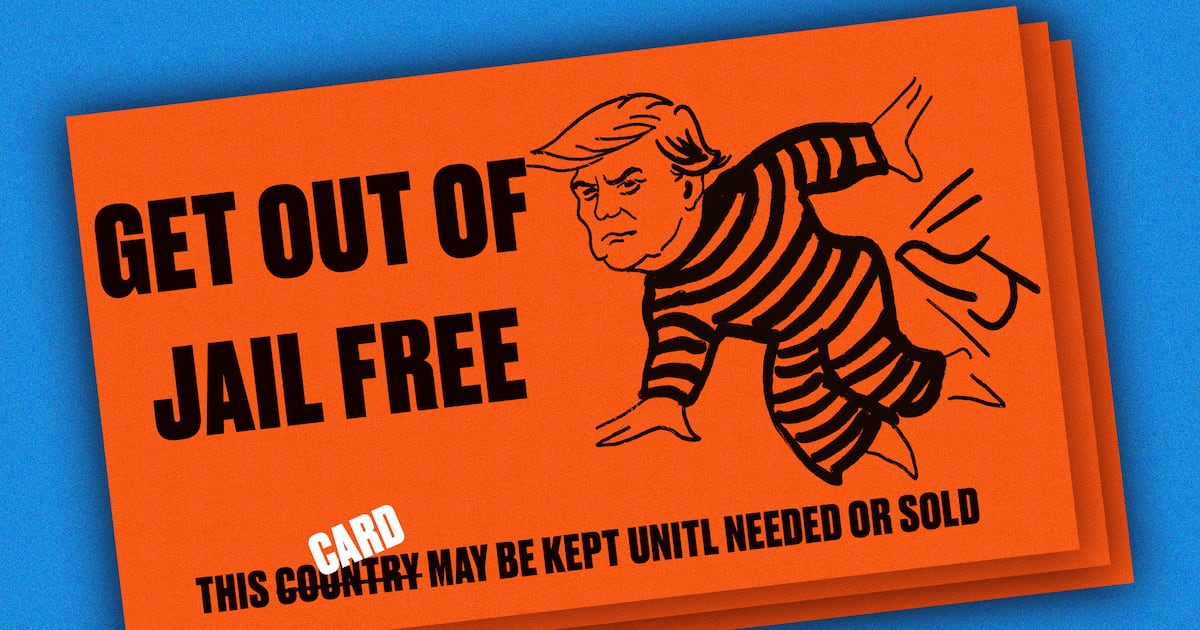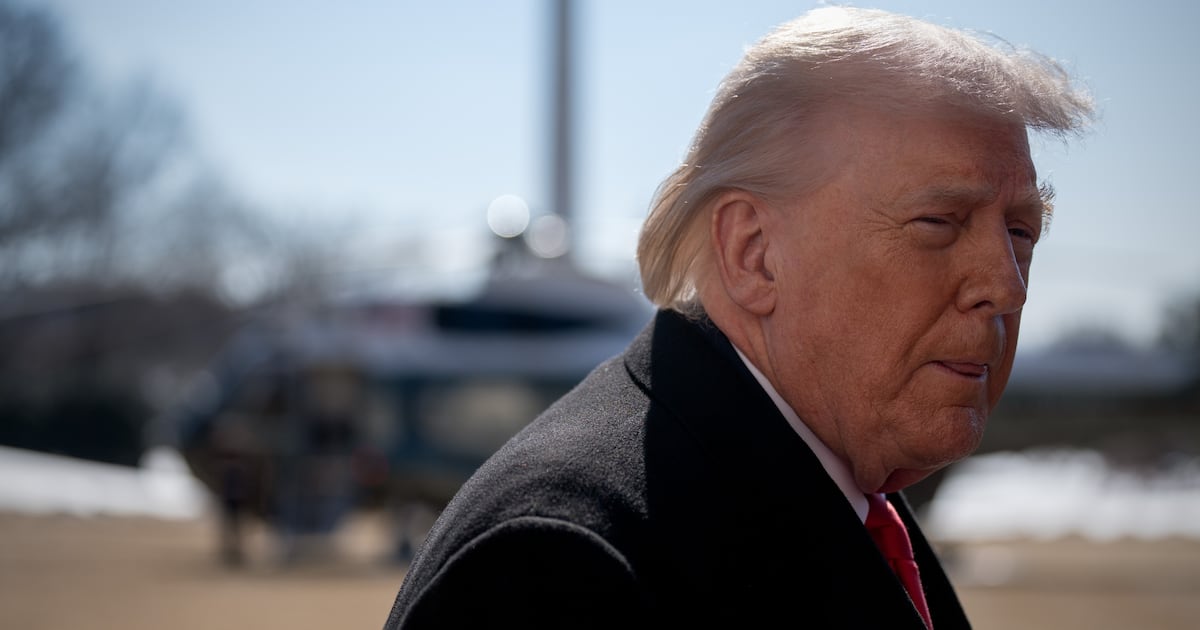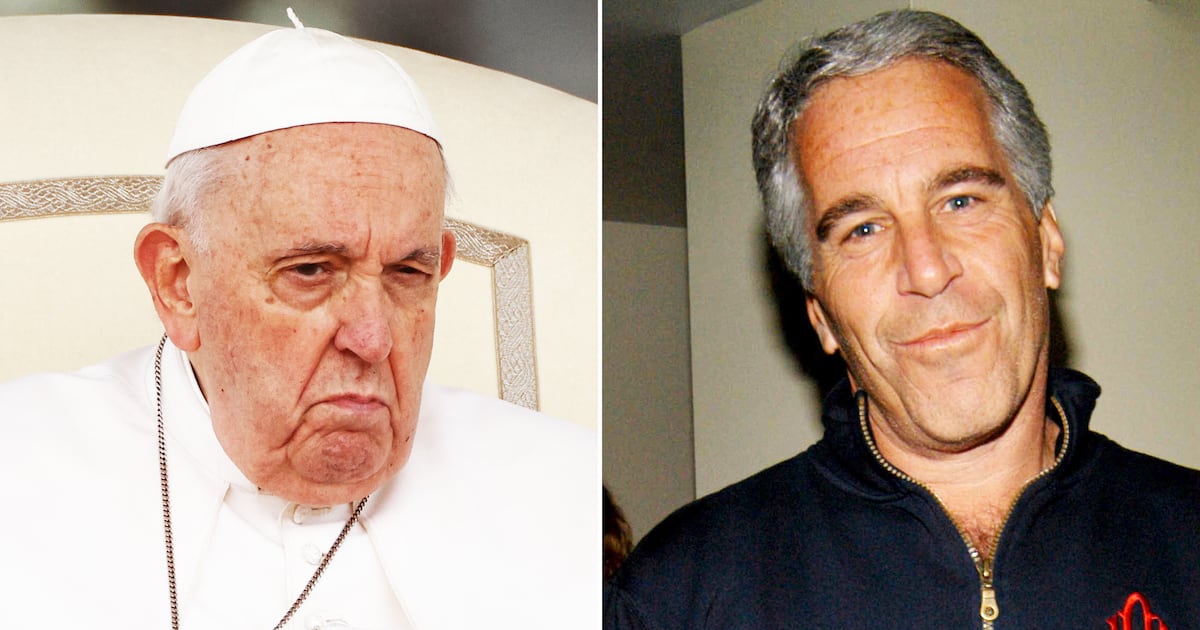In late January, a 5,500+-word article appeared on the front page of The New York Times, delving deep into the labor practices of Apple. For years the company’s manufacturing has been in China, and the Times presented workers’ conditions there as abysmal, with people working huge amounts of overtime, often without being paid for it. “Serious—sometimes deadly—safety problems,” abounded, the paper reported, with hundreds of workers injured by explosions and poisonous chemicals used to clean iPhone screens.
Several died.
Needless to say, it was shocking; first because Apple’s profits are so large at this point that such suffering seemed unnecessary; and second, because Apple actually cultivates an image of being more humane than other tech companies.
But one man who was not terribly surprised by anything in the piece—nor a series of follow-ups—was Mike Daisey.
For nearly five months, the award-winning monologist has been performing an extremely prescient one-man show at the Public Theater called The Agony and the Ecstasy of Steve Jobs, that is focused largely on the company's labor practices. He even spoke to one of the Times’s reporters on the piece during the course of the reporter’s research, although most indications are that the paper of record had begun work on the story months before reporters there saw Daisey’s show.
Says Oskar Eustis, the artistic director of the Public Theater: “We want to be careful about taking too much credit for the Times’s coverage or Apple’s response to all of this.” (More on that in a minute.) “But what I am clear about is that Mike’s voice was a significant piece of the pressure that both has led Apple to change their policy and that has led other media to give coverage to it. When you’re making theater, that’s what you dream of. It’s not business as usual and when it happens it’s fantastic.”
On a recent sunny morning, I went to breakfast with Daisey at a restaurant in Carroll Gardens, in Brooklyn, near where he lives with his wife, Jean-Michele Gregory, a director who has helmed most of her husband’s plays. He is a big guy, and was wearing black pants and a black button-down shirt. He was eating an omelet, and had moved the bread off his plate. His roughly 3-year-old, jail-broken, iPhone 3GS was on the table.
Daisey said that while he wasn’t totally boycotting at this point, he has begun to think hard about upgrading his devices unnecessarily and giving extra money to a corporation with a questionable ethical footprint. Hence the old device.
Nor was Daisey entirely convinced by Apple’s recent promises to ride the factories harder about improving the conditions of workers.
For one, he said, there was an internal email by Apple CEO Tim Cook, shortly after the Times’s first article, in which Cook said that “any suggestion that we don’t care is patently false and offensive.”
“I was amazed that he chose to make the dominant tone of that email fury,” Daisey said. “I think that was the honest moment of that email, and it speaks to something very sad about Apple. At the heart, Apple’s been infected with a very serious arrogance and has been for a very long. They’re really a great company when they’re fighting the odds. When they’re not, it’s bad. I have a good friend who’s a vice president at Microsoft, and years ago he told me, ‘The only people you would not want to see with a monopoly more than us is Apple. You think we’re assholes. You have no idea.’ And I think we’re seeing that come true.”
Daisey blames the tech press, which has been focused disproportionately on reviewing products at the expense of investigative or adversarial journalism, and has almost always seemed to be in the tank for Apple. “More than a lot of other types of journalism, it’s dominated by people who love [the thing they cover] and have an incredibly strong vested interest, personally, I would almost say spiritually, in not examining how everything is made, because that’s a deeply uncomfortable topic.” (The Times piece was done primarily by two reporters on its business desk, Charles Duhigg and David Barboza, neither of whom focuses principally on the consumer side of things.)
Though Daisey takes a certain amount of pride in having been early to this story, he points out that it was in many ways hiding in plain sight, that he is at best a canary in a very sunlit coal mine. “Shenzhen is not some distant unknown valley in Nepal that you hike into,” he said of the city where heaps of Apple products are made, the place he visited in 2010. “You can fly right into Hong Kong and take the subway there. Anyone can do it."
On certain days, he spoke to up to 50 people a day, sometimes right in front of Foxconn (the best-known factory subcontracted by Apple, and the site of all those suicides a few years back). From there he began to construct the rough outline of his show. (Though Daisey works from notes during every performance, he prefers to work extemporaneously rather than with a script.) Jumping back and forth between Jobs’s story and the stories of the anonymous people who make his company’s products, Daisey built a portrait of Apple that conveys the insanity of its many fanboys and then the disillusionment of one of them upon realizing the ugly cost of doing business.
After performing the show around the country over the last year or so, Daisey brought it in October to the Public, where it opened almost within moments of Jobs’s death from cancer. It may not have been the most opportune timing. (“It was challenging in the room,” Daisey says. “People didn’t know what they were going to hear. They were fearful about the gestalt.”) But reviewers swooned, as did audiences, who seemed to appreciate both how counterintuitive the show was (a self-professed tech geek who dared critique his favorite company for its closed system, its big-brother behavior, and its bad labor practices!) and how humorous and un-self-serious the whole event was.
It’s now been extended three times, and a transcript of the show posted on Daisey’s website was downloaded 40,000 times within days of being posted last week.
Eustis, who has provided a New York home for two of Daisey’s other shows, is not exactly surprised at the monologist’s success, though he’s certainly elated by it.
As the Public’s artistic director tells it, he first saw Daisey back in 2008, when he was doing a show called How Theater Failed America. “It was a piece that actually made me squirm, and that doesn’t happen very often,” Eustis said. “And it certainly doesn’t happen very often in the theater that somebody invites me to see a piece of theater that’s going to make me squirm and then invites me up on stage to talk about it onstage afterwards. But that's Mike. In a way, his relationship to the American theater prefigured his relationship to Apple. He loves the American theater, and he’s completely disappointed in it. He loves Apple and he’s incredibly disappointed in it. And that ability to hold those two things in his mind simultaneously is part of what makes him a great and effective artist. His love and his disappointment walk hand in hand.”

